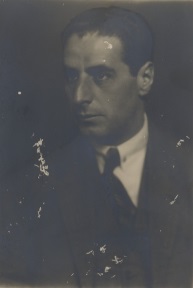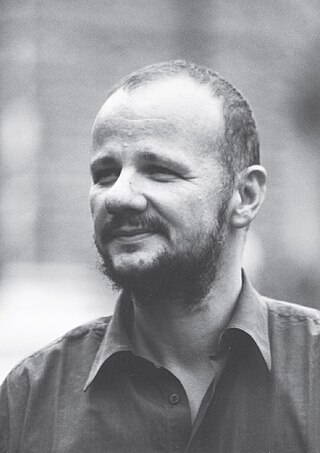Related Research Articles

Karl Amadeus Hartmann was a German composer. Sometimes described as the greatest German symphonist of the 20th century, he is now largely overlooked, particularly in English-speaking countries.

Ernst Toch was an Austrian composer of European classical music and film scores, who from 1933 worked as an émigré in Paris, London and New York. He sought throughout his life to introduce new approaches to music.
Marcel Mihalovici was a French composer born in Romania. He was discovered by George Enescu in Bucharest. He moved to Paris in 1919 to study under Vincent d'Indy. His works include his Sonata number 1 for violin and piano (1920), Mélusine opera, his 1st string quartet (1923), 2nd string quartet (1931), Sonata number 2 for violin and piano (1941), Sonata for violin and cello (1944), Phèdre Opera (1949), Étude in two parts for piano and instrumental ensemble (1951) and Esercizio per archi (1960). Many of his piano works were first performed by his wife, the concert pianist Monique Haas.

The Bassarids is an opera in one act and an intermezzo, with music by Hans Werner Henze to an English libretto by W. H. Auden and Chester Kallman, after Euripides's The Bacchae.

König Hirsch is an opera in three acts by Hans Werner Henze to a German libretto by Heinz von Cramer after Il re cervo, a theatrical fable (1762) by Carlo Gozzi. He revised it as Il re cervo, premiered in 1963 at the Staatstheater Kassel.
Hendrik Pienaar Hofmeyr is a South African composer. Born in Cape Town, he furthered his studies in Italy during 10 years of self-imposed exile as a conscientious objector. While there, he won the South African Opera Competition with The Fall of the House of Usher. He also received the annual Nederburg Prize for Opera for this work subsequent to its performance at the State Theatre in Pretoria in 1988. In the same year, he obtained first prize in an international competition in Italy with music for a short film by Wim Wenders. He returned to South Africa in 1992, and in 1997 won two major international composition competitions, the Queen Elisabeth Music Competition of Belgium and the first edition of the Dimitris Mitropoulos Competition in Athens. His 'Incantesimo' for solo flute was selected to represent South Africa at the ISCM World Music Days in Croatia in 2005. In 2008 he was honoured with a Kanna award by the Kleinkaroo National Arts Festival. He is currently Professor and Head of Composition and Theory at the South African College of Music at the University of Cape Town, where he obtained a DMus in 1999.
Myriam Marbé was a Romanian composer and pianist.
David Horne is a Scottish composer, pianist, and teacher.
Roger Steptoe is an English composer and pianist. He studied music at the University of Reading as an undergraduate and then at the Royal Academy of Music, London, from 1974 to 1977 as a post-graduate student. There he studied composition with Alan Bush and piano accompaniment with Geoffrey Pratley.
Alexander Mikhailovich Raskatov is a Russian composer.
Piotr Lachert was a Polish composer, pianist and teacher.
Elena Petrová, née Krupková was a Czech composer. She was born in Modrý Kameň, and studied piano with Karel Hoffmeister and composition with Jan Kapr and Miloslav Istvan at the Janáček Academy of Music. After completing her studies, she taught music theory at the Charles University in Prague.

Gerhard Schedl was an Austrian composer.

Witold Friemann was a Polish composer, pianist, conductor and pedagogue. He was very prolific and composed more than 350 Opuses, most of which remain inedited.
Hans Werner Henze's Symphony No. 4 was written in 1955. It was premiered at the Hochschule für Musik, Berlin on 9 October 1963 by the Berlin Philharmonic Orchestra conducted by the composer.
Alfred Vökt was a Swiss operatic tenor who made a career at major opera houses, mainly in Germany. He focused on supporting roles and took part in world premieres such as Henze's König Hirsch in Kassel and Hans Zender's Stephen Climax at the Oper Frankfurt in 1986. Vökt appeared at major European opera houses and festivals.
References
- ↑ "Vokalsinfonie aus der Oper "König Hirsch"". schott-music. Retrieved 21 March 2019.